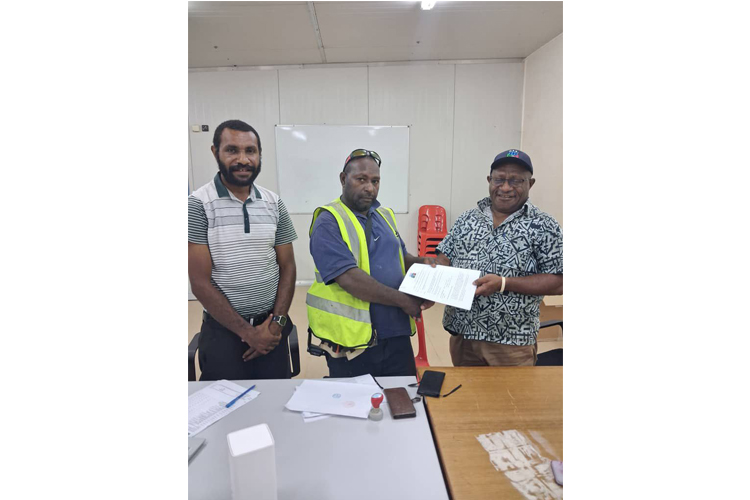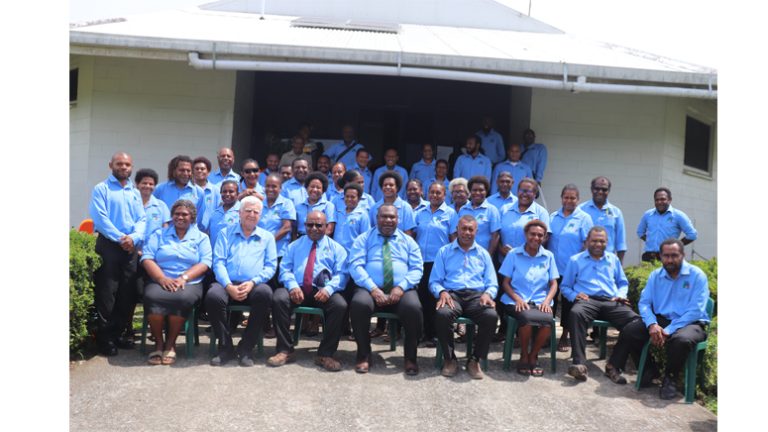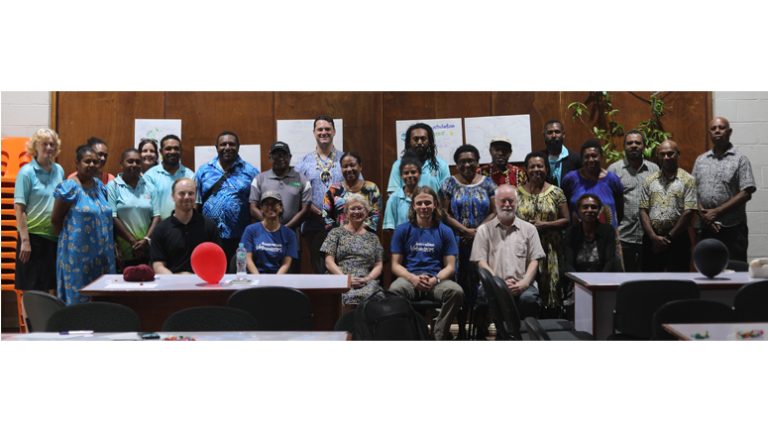The National Agriculture Research Institute (NARI) wants the National Livestock Policy to provide clear directions on Livestock Research and Development.
NARI’s top management attended the Momase National Livestock Policy Consultation Meeting on Tuesday (May 20, 2025) to provide Research and Development Input.
Speaking at the Momase Region, National Livestock Policy Consultation in Lae, Deputy Director General of NARI, Dr Peter Gendua reiterated Research and Development as cornerstones for growth in the industry.
Participants were reminded that the underlying objectives for all government agencies are to address socioeconomic gaps to create a happy, healthy, and wealthy society as spelt out in Vision 2050.
As a government-sanctioned research facility, NARI prioritizes Economic Development and Value Chains, Building Resilient Systems, and finding solutions for Nutritious Food and Healthy Diets.
NARI remains the sole Livestock research facility in the country and believes, with support from the Department of Agriculture and the Livestock Development Corporation through policy guidelines, that more innovative solutions are viable.
“We are not only talking about commercial agriculture for both livestock and crops, but we’re also talking about commercial economic activities, climate resilience, and nutrition.
“We have to ensure that someone in a very remote area is having a healthy, nutritious meal that includes affordable meat,” Dr Gendua stressed.
Other concerns raised by participants included Stock Feed cost and accessibility, and an effective breeding program.
Addressing these concerns, Dr Gendua pointed out that NARI currently focuses on poultry, goats, pigs, and fish; therefore, is exploring cost-effective feeding systems under these livestock, such as Pig silage, Mini feed mill system, and Black Soldier Fly.
“Under genetic resources, we are looking at Village Chicken, Ducks, Goats, and Pigs whilst exploring solar-powered hatchery and incubation, and rural hatchery, and breeding centers, to address access to breeding stock.”
Cementing his colleague’s point of view, the Director General of NARI, Dr Nelson Simbiken, highlighted the importance of Genetic breeding and suggested that the policy encompass a system that involves rural and smallholder farmers.
“We have a massive problem of not having good genetic material maintained at the breeder farms. If companies are already doing that, then we must close the gap between smallholder commercial farmers and the companies.”
NARI is prepared to partner with the Livestock Development Corporation to achieve the Government’s policy objectives that are aligned with the National Agriculture Sector Plan and the MTDP 4, ultimately achieving Vision 2050.




